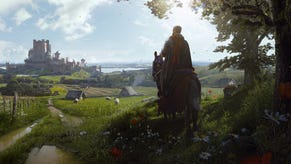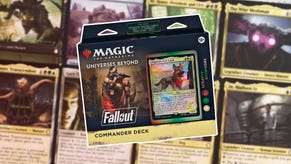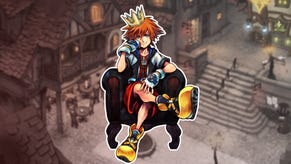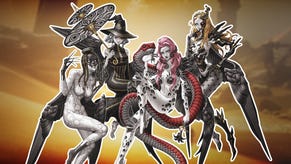USgamer Community Question: What's Missing From Our 15 Best Games Since 2000 List?
Do you think there are glaring omissions from our 15 Best Games Since 2000 list? Here's where you can discuss that very topic.
This article first appeared on USgamer, a partner publication of VG247. Some content, such as this article, has been migrated to VG247 for posterity after USgamer's closure - but it has not been edited or further vetted by the VG247 team.
With our 15 Best Games Since 2000 feature now finally complete, it's time to have a good old-fashioned discussion. Many of you have already commented on the games that we chose, and it's clear that almost all of you think there are omissions from our list. So that's our community question this week - which games do you think are missing, and why?
Odd though it may seem, the USgamer team also agrees that there are games missing from this list - that's because we arrived at this roster democratically, from an original list of 50 nominees. After a series of votes, that was whittled down to the final 15 games. So, basically, everybody on the team had to reject at least a few games from their own personal recommendations.
So while you ready your answer, here are the games that the USG team feel should have also been included on the list.
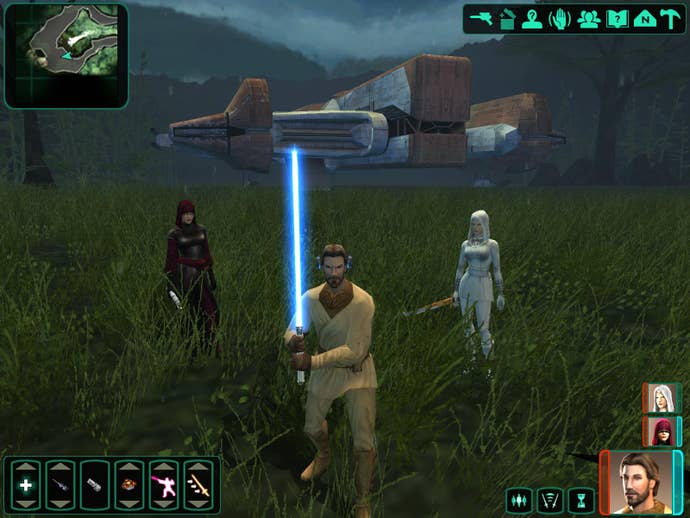
Kat Bailey, Senior Editor
I would have really loved to have gotten Knights of the Old Republic on this list. It's BioWare's best RPG since 2000, boasting the best story, the best characters (take a bow, HK-47), and the best twist.
It came out at the perfect time. It established a new time period in the franchise's history and in the process helped to wash away some of the bad taste of the prequels, which after Attack of the Clones had been established as being very bad. It also kickstarted a serious migration of major PC developers to console.
In this period, BioWare was still very much at the top of their game, and were widely regarded as the single best RPG studio in the industry. But they outdid themselves with Knights of the Old Republic, putting their stamp on a period of the lore that had yet to be fleshed out while giving players free rein over a rich setting. It's amazing that there hasn't been a true sequel yet (The Old Republic doesn't count).
Mass Effect and its sequels are flawed, Dragon Age is Dragon Age, but Knights of the Old Republic has managed to stand the test of time. It's a pity that we couldn't find a way to squeeze it in to the list.
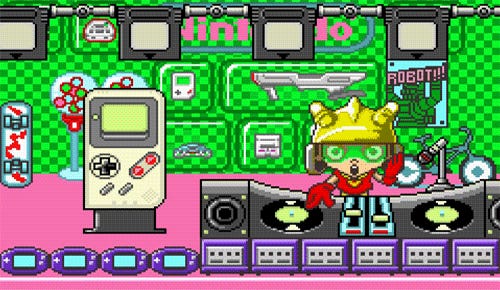
Bob Mackey, Senior Writer
Wow, this is a tough one. I could pore over the games that didn't make the cut, weighing the pros and cons of each in a highly analytical manner... or I could just go with my gut feeling and make this a hell of a lot easier on myself. Yeah, let's do that.
During the various rounds of voting conducted by USgamer's staff, one game I really believed in didn't make the cut: WarioWare, Inc.: Mega Microgame$!, which has a full title so complex, I'm only going to type it once. Now, I consider myself a pretty big Nintendo fan, but this weird little Game Boy Advance experiment could be the last time one of their productions truly surprised me. Simply put, WarioWare was unlike anything we'd ever seen before, and not just because the iOS store wouldn't materialize until four years later. While most Nintendo games offered a very polished, incremental approach to game design, WarioWare amounted to pure lunacy, though there was a method to its madness.
WarioWare would have been fantastic had it released in any year, but its appearance in 2003 seemed, in part, a rejection of growing trends in game design. In the early '00s, games were taking advantage of the new DVD format by expanding their worlds to gargantuan sizes and adding boatloads of non-interactive content—this was the year that gave us Xenosaga, the game with cutscenes so long it offered save point intermissions within some of them. WarioWare trimmed the fat, and featured video games at their most basic by presenting rapidly delivered situations that give you roughly three seconds to figure out and "solve" via some very limited commands. The result? An amazing creative sandbox for some of Nintendo's most talented staff to think up their craziest ideas.
As most WarioWare fans, and they'll tell you the series likely peaked with 2005's WarioWare Twisted: It fell back on the original game's formula, but added a new accelerometer-based gimmick that owes a great debt to Nintendo's roots as a toymaker. And even though the series may have died with 2013's Game & Wario, its spirit lives on through series like Rhythm Heaven and one-offs like Rusty Slugger's Real Deal Baseball. WarioWare may be dead, but as long as the philosophy behind this series finds its way into other Nintendo games, I'll be happy.
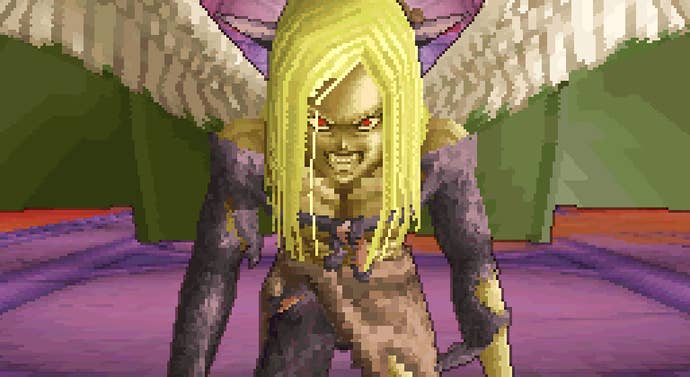
Jeremy Parish, Editor-in-Chief
I worry about our civilization when I'm the only one who'll vouch for Dragon Quest IX, probably the single best RPG of the past decade. Oh, I know, it can't be great, it was on a portable system. Boo hoo hoo, being able to play an amazing RPG anywhere you want, what a tragic affliction.
Dragon Quest IX really brought together modern-day RPG design — tons of sidequests, lots of opportunities for time-wasting with optional grinding and tasks — with the classic Dragon Quest spirit. The grand, semi-non-linear quest sprawled across multiple continents, linking together self-contained story vignettes which often yielded surprising outcomes. All the classic Dragon Quest elements were there: Beloved monsters, familiar spells, multi-classing mechanics, and pleasant music from Koichi Sugiyama.
These familiar elements, however, came together in a sweeping epic reminiscent in many ways of an MMO. Much like Final Fantasy XII (another game that shoulda oughta have been on this list), DQIX offered numerous hooks for extended play time. Unlike FFXII, however, those hooks actually did involve other people. DQIX allowed for either solo play or collaborative adventuring with other players, while somehow still managing to retain the traditional turn-based Dragon Quest combat format. And its most compelling connection to other players wasn't even multiplayer — it was the social Street Pass element the game incorporated long before Street Pass was a real thing. Swapping character data with other players opened up the possibility of getting hold of treasure maps that could lead to incredible wealth, especially for those with an aptitude for complex game exploitation tricks.
Dragon Quest IX swept Japan, and for a small but enthusiastic fan base in the West it was just as addictive. I've poured a lot of hours into a lot of RPGs in the past decade, but none quite on the level of DQIX… and even so, I still find myself itching to replay it from time to time.
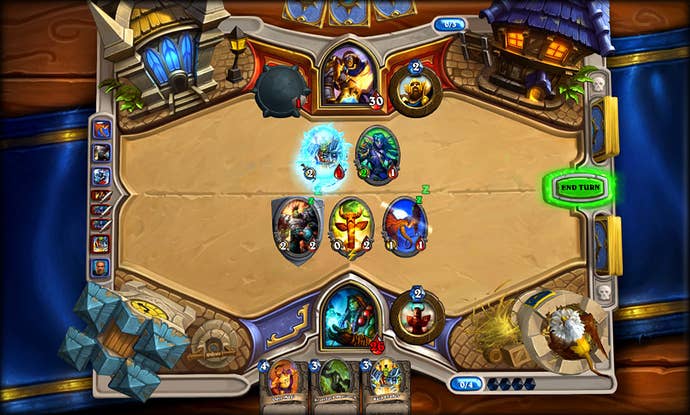
Jaz Rignall, Editor-at-Large
The big glaring omission as far as I'm concerned is Hearthstone. It was counted out for a couple of reasons. Firstly, since Kat and I are the only people on the USG team who play it regularly, that resulted in it only getting a couple of votes, so it didn't make the round one cut out of an initial list of some fifty nominees. But the second, more significant reason is that it's only been around for about 18 months or so, and hasn't really had time to properly establish itself as a true classic game like most of the other titles on this list.
However, even though it's relatively new, I still think Hearthstone is one of the best games of this century. I've been playing it regularly ever since beta, and indeed love it enough to call it a comfort food game. In that article I go into a lot of detail about why I like the game so much, so I'll try not to repeat myself too much here, but ultimately Hearthstone is a hugely fun digital card game that follows the classic formula of being easy to learn, but having extraordinary depth.
Games don't take too long to play - anywhere between 5-15 minutes on average - and you can build a huge variety of decks using its nine different hero classes. Want a fast deck filled with little creatures designed to overrun your opponent very quickly? You can do that. Or you can use massive, slower creatures to smash your opponent to bits. There are all manner of combo decks you can create, and you can even put together tricky control decks or ones designed to run your opponent out of cards. And I'm barely scratching the surface of possibilities. The sheer variety and scope of deckbuilding is much of what makes Hearthstone so incredibly fun to play as a one-on-one PvP game.
But to me, it's all the neat little touches that make Hearthstone feel so good to play - particularly on touch devices. The interface is simply brilliant. From the myriad of ways different cards are summoned onto the playfield and the way that cards "attack" one another to the interactive parts of the playfield itself, Hearthstone is packed full of tiny little details that are exceptionally thoughtful. In cooking, it's often said that you can feel the love put into a meal - and I believe it's the same thing for video games. There's a level of craft that has gone into Hearthstone that's simply extraordinary. The game still would have been fun even with a fairly inert interface, but the developers have gone above and beyond to create a game that really feels alive in your hands.
We'll just have to wait and see how history ultimately judges it, but I think Hearthstone is going to go down in history as one of the greats: it's done for digital card games what World of Warcraft did for the MMO. I can't think of much better praise than that.
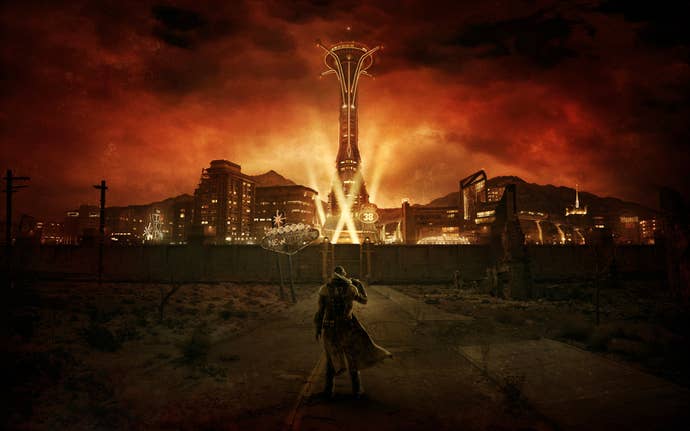
Mike Williams, Associate Editor
I fought hard to get certain games up on the Top 15. Assassin's Creed IV: Black Flag was one of my dark horse choices and the only one that experienced any pushback, despite being an amazing title. Burnout's inclusion was solely due to Jaz and I, though we originally differed on the specific title (he chose Takedown, I chose Revenge). Star Wars: Knights of the Old Republic, Kat's ultimate choice above, was actually a game from my list of 15. Getting a list of 15 for various people is hard; you folks only saw the final 15, not the process that got us here or our original lists.
Looking over my available options, I'm going to go with Fallout: New Vegas as the title that I wish was on the proper list. Fallout 3 was one of the best RPGs in terms of available content and choices. Fallout: New Vegas outdid that title with better writing, improved combat, and awesome quest design. While Fallout 3's world was deep, New Vegas feels like a real place.
When was the last time you started a game by being shot in the head? New Vegas touches down with one of the best opening scenes and it never lets up. Who cares about good and bad karma? No, the only thing that matters is your local reputation. The quests aren't simply straightforward, instead erring on the side of grey morality. And the cast is amazing, from Benny, to Caesar, to Raul Tejada, to the robotic Yes Man. Obsidian knows what it's doing when it makes characters and New Vegas is no slouch.
Is New Vegas buggy as hell? Ye gods, yes. But it's so damn good that it doesn't matter that it's super-buggy. The bugs are an annoyance, but you'll keep playing because the game behind them is so amazing. That's the sign of something special. I've poured a ton of hours in New Vegas and fixing the bugs is all I'd ever want from a remastered version. All in all, New Vegas is definitely one of the best RPG of the past 15 years and Fallout 4 looks to continue that pedigree.

